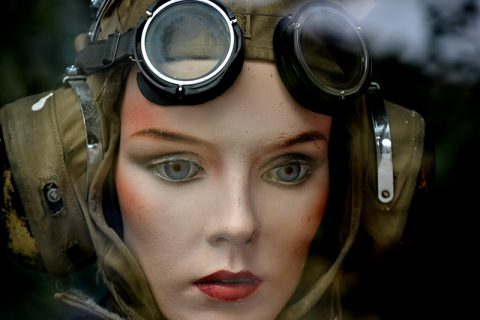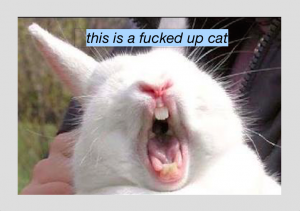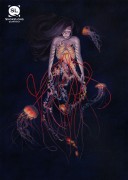Of late, I’ve heard two factions in the world complain about political correctness: Stand-up comedians and Donald Trump. Comedians are mad because their jokes are limited. Donald Trump is mad because _________.
… if he had to be politically correct, he would have to learn some new words, which would mean he’d then have to learn to read.
Sorry for the requisite Donald Trump question, but I wanted to date this interview, just so future historians would be sure of when it took place. Now that that’s out of the way, I’ve noted that a comedian’s workshop is different than a writer’s, as comedians have to go on stage, build a routine, add a joke each night, take one away, see what the audience likes and doesn’t. Writers do that privately, more or less—don’t get those automatic reactions to every line. As a writer, are you jealous of their process?
Actually, I believe that hopeful, amateur, and emerging comedians have so much in common with hopeful, amateur, emerging writers.
We write alone. We go to these poorly attended/poorly organized events and try to make impressions with our five minutes. We send out work to people looking for acceptance. We keep Twitter open on a second tab at work and consistently try to make other writers/comedians laugh. We worry daily about the choices we’ve made. We constantly compare ourselves to each other. We’re broke and lonely. We try to reach other humans via words. We fall asleep (or don’t) hearing our own lines in our head, trying to determine whether anyone else is hearing them (or might want to).
The process doesn’t seem much different (at least in my experience) because I’m sharing my work with a close set of writer/readers frequently, publishing as often as I can, tweeting out lines and mini-story ideas, and going to events to open-mics to read for five minutes. I make adjustments to my work based on all the different kinds of feedback I get.
If you had to be the straight man in a routine, keep a straight face, you might use an actor’s trick and think of something awful to keep yourself from cracking up, breaking character. What’s the horrible thing you would think about?
Jonathan Franzen’s voice.
I’ve heard multiple comedians say the funniest joke ever is an Emo Philips bit: “So I’m at the wailing wall, standing there like a moron, with my harpoon.” Give us a funnier joke:
My Emo Philips homage: “So I’m at Atlantic City, standing there like a moron, with my snorkel.”
My favorite joke I wrote: “A Bumper sticker that reads: MY OTHER CAR WAS DESTROYED IN WORKSHOP”
My funniest joke in recent memory:
Last but not least, are you funny? Maybe I should have asked you this before I asked that last question, but let’s go with it anyway. Eh?
As you can tell from the last question, not really. Writing actual setup/punch-line jokes, the way comedians do for TV shows or monologues, is so daunting to me. I really want to challenge myself to write jokes, but it scares me even more than writing a novel. Because I like to believe I’ve got a good sense of humor, but then it comes down to, “OK, tell us a joke ….” I freeze.
I actually think I’m pretty good in group situations, able to riff off who/what is around me. I can think on my feet in that way, but those quips or bits are always so context-specific. That’s how I spent my teenage years, sitting in diners or the backs of vans with my best friends, just bullshitting, making each other laugh. What I’ve found in my failed attempts to write about that special kind of friendship is that those jokes aren’t really translatable. “You just had to be there” is probably the truest sentence ever.




 The core workshop of SmokeLong Fitness is all in writing, so you can take part from anywhere at anytime. We are excited about creating a supportive, consistent and structured environment for flash writers to work on their craft in a community. We are thrilled and proud to say that our workshop participants have won, placed, or been listed in every major flash competition. Community works.
The core workshop of SmokeLong Fitness is all in writing, so you can take part from anywhere at anytime. We are excited about creating a supportive, consistent and structured environment for flash writers to work on their craft in a community. We are thrilled and proud to say that our workshop participants have won, placed, or been listed in every major flash competition. Community works.